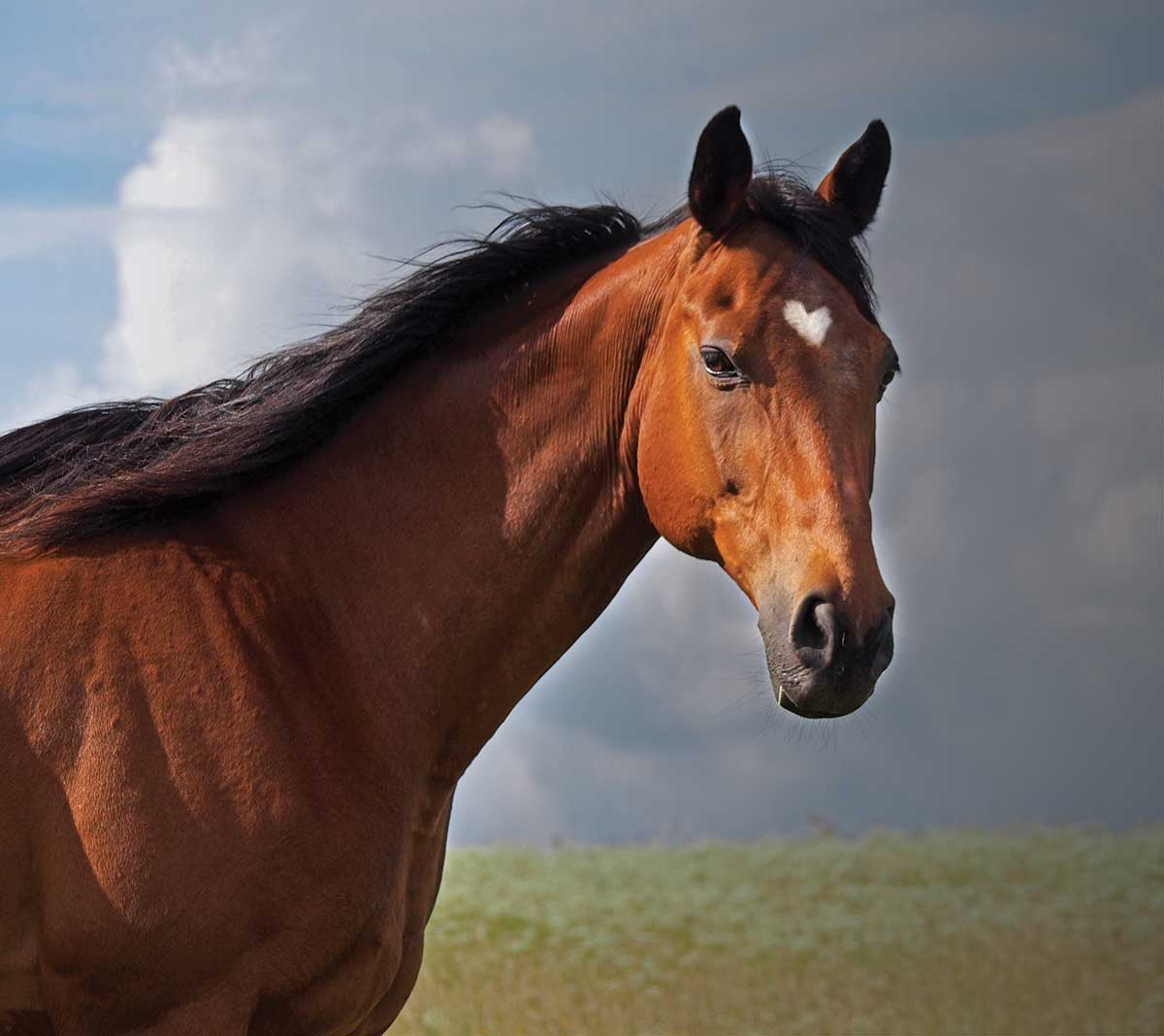
An older horse can be worth his weight in gold. Plus, you just plain love him. Here are important considerations for keeping your senior horse—that is, one 15 or older—happy and healthy.
Movement
Exercise keeps aging muscles strong and joints operative, plus promotes your horse’s overall mental and physical health. Full-time turnout (with appropriate pasture-mates that won’t haze or injure him) is ideal.
With under-saddle exercise, keep expectations realistic. After all, a 25-year-old horse is roughly comparable to a 75- to 100-year-old human, and while some 80-year-olds run marathons, many others are in wheelchairs.
So use common sense and stay aware of your senior horse’s changing capabilities and energy levels as you continue to ride him. (Review “Feel-Good Work for Your Senior Horse” at HorseandRider.com.)
Nutrition
A changing metabolism means your aging horse’s digestion of crude protein and absorption of essential amino acids are becoming less efficient. Reduced saliva production and tooth problems can also compromise his ability to chew and swallow. If he can’t fully utilize ordinary hay and grain, he may begin to lose muscle mass and tone, especially along the topline. The solution is a more palatable feed that has a higher level and quality of protein to compensate.
In general, cereal grains (oats, corn, barley) and feeds made from them are best avoided. That’s because your aging horse is also more susceptible to insulin resistance and PPID (pituitary pars intermedia dysfunction, or Cushing’s disease). Feeding lower-starch feeds avoids promoting these conditions.
A commercial diet specifically designed for aging horses can benefit your oldster’s health by providing high-quality protein sources that are safe and easy for him to digest (see information at right).
Other Issues
Older horses need all the same basic care other equines do, including regular vaccinations and deworming, plus routine hoof care. Twice-yearly visits from your vet make it possible to catch early signs of conditions common to older horses—such as the digestive difficulties, PPID, and insulin resistance mentioned earlier, plus arthritis pain, melanomas, and kidney or liver problems. Extra dental work may be necessary at times; watch for quidding (dropping wads of partially chewed forage) and alert your vet as necessary.






